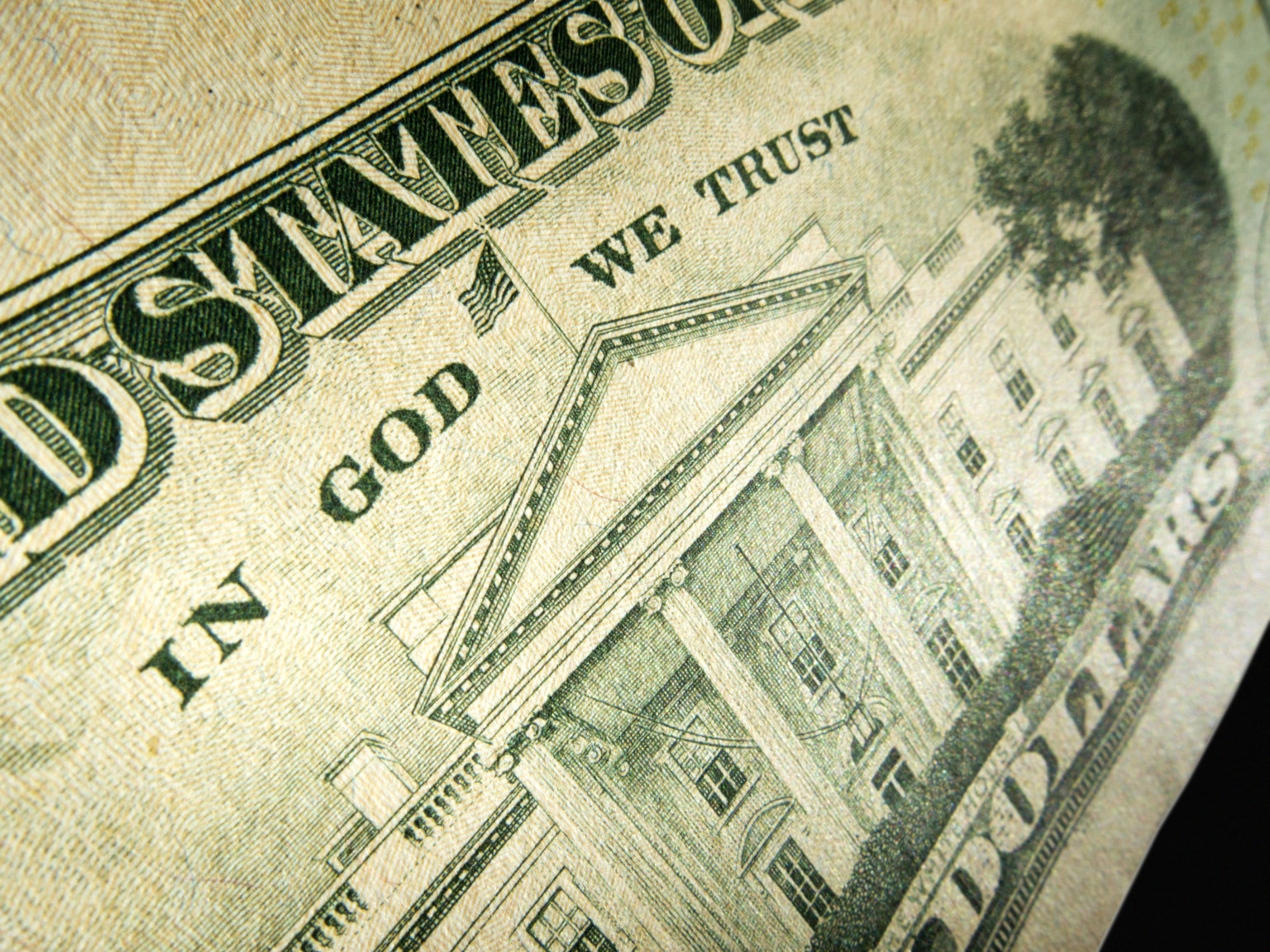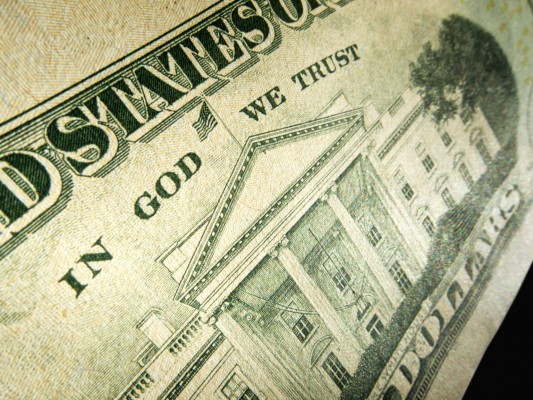
Atheists Continue to Challenge “In God We Trust” on U.S. Currency
- By Alison Lesley --
- 30 May 2015 --

Michael Newdow has vehemently opposed the appearance of “In God we trust” across the United States currency, though he was continuously shot down by the Supreme Court in any of his attempts to have it removed. In 2003, he sued under the basis of the Establishment Clause , which specified that “Congress shall make no law respecting an establishment of religion, or prohibiting the free exercise thereof…” to have “In God we trust” removed, only to be denied under the claim that the phrase was secular. With the establishment of the Court’s recent views of the Religious Freedom Restoration Act (RFRA), the law has been widely used in an attempt to protect religious groups and allow religious businesses to circumvent certain laws, such as anti-discrimination laws, anti-abortion laws and laws that prohibit the feeding of homeless people. The RFRA specifies that religious activity can’t be burdened save for instances in which the government can offer a “compelling governmental interest and laws narrowly tailored to serve that interest.”
Who is the We in “In God We Trust”?
Newdow has expressed his displeasure, but hopes that the newest case he plans to file in seven court circuits will be more readily accepted under the RFRA. He posted on the Friendly Atheist about his views, outlining the basic plan and explanation of what he would be arguing. He feels that if the government has a “compelling interest” in having “In God we trust” on the US currency, there is definitely a problem here. “Imagine if Christians had to carry on their body something they disagree with religiously… How long do you think that would stand?” Newdow pointed out, adding that “atheists are so denigrated in this society that people accept this without a second thought.”
Newdow isn’t the only one frustrated by “In God we trust.” The use of it, as well as ‘under God’ in the Pledge of Allegiance, has been argued in court for decades. The court has stayed steady on that “In God we trust… has nothing whatsoever to do with the establishment of religion.” Just 2 years ago, a judge conceded that it was clear his plaintiffs were burdened by the religiously themed currency, but decided it didn’t “constitute a substantial burden.”
Answer Man: Who decided to put 'In God We Trust' on cars? http://t.co/nCBKP7QS8e
— News-Leader (@springfieldNL) May 26, 2015
Whether Newdow will choose to claim atheism as a religion of its own for legal purposes, or if he will gather together like-minded plaintiffs is unclear. One potential plaintiff is a Jewish man who prescribes to a Judaist religion that prohibits the use of “God” for respect toward the divine powers. As a result, the man no longer uses American currency and struggles to keep up his regular life.




















